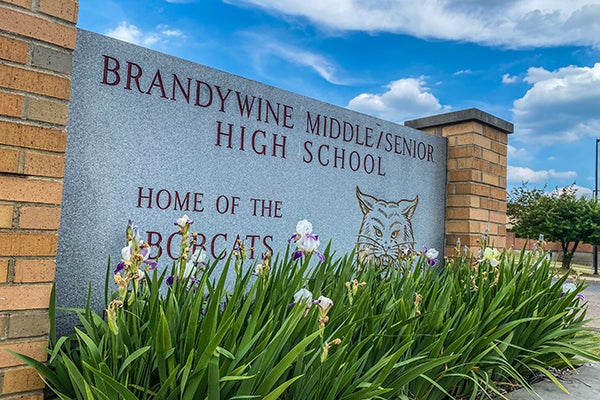Book restriction discussions continue at Brandywine
Published 1:30 pm Sunday, June 25, 2023
|
Getting your Trinity Audio player ready...
|
NILES — Friday night’s meeting of the Brandywine Board of Education’s explicit book review committee brought some clarity to the discussion even if it didn’t resolve many of the issues surrounding the topic.
Over 75 district residents attended the committee meeting held in the middle/high school media center. The board’s explicit book review committee consists of Board Vice-President Elaine McKee, Trustee Michelanne McCombs and Superintendent Travis Walker.
Board members and residents have addressed the topic since January after four new board members elected last fall took office. There is now a moratorium on the purchase of explicit books, about 30 books have been pulled from the shelves and put under restricted access and the explicit book review committee has been formed.
Residents in attendance Friday night took exception to not only the issues being addressed but the meeting itself. They said that board members purposefully scheduled the meeting on a Friday night to keep people from attending. Ambrosia Neldon called it a “slap in the face” to have the meeting scheduled for a Friday night in the summer.
As for the issues being addressed, residents continued to claim that the board members are seeking to ban books and interrupted the meeting a number of times with boos and loud comments.
Jasmine LaBine spoke out against removing books on sensitive subjects from the middle/high school library. “By removing these stories, you’re telling students that their stories are not worth being heard,” LaBine said. “Are we telling students that we don’t want them to learn who they are?”
Kevin Smith said that explicit passages about rape read from one of the books in question was taken out of context. “None of this should be personal,” he said. “This seems to be coming from a place of personal discomfort for board members. It’s not for any one parent to say they don’t like something so no one should be able to read it.”
Brian Adams said he’s concerned about potential liability the district may have if they remove books as well as the division being sown in the community. “You are opening the district up to liability,” he said. “You could bankrupt the district over your personal beliefs.”
Jen Unger said it was frustrating to hear talk about banning or restricting books. “Why is this a bigger priority for a meeting than hiring teachers,” she asked. “It’s frustrating that the board is not listening to residents.”
For their part, McKee and McCombs maintained that they are not seeking to ban books but establish policies and procedures that will ensure that the district comply with state and federal laws as well as community standards. They also noted that while some of the explicit books may provide life lessons, those lessons can be found in other books without the explicit language.
Policies they mentioned included those dealing with the use of federal funds and the acceptable use of computer resources. They also asked whether sections of the student handbook dealing with inappropriate language and appropriate dress should also be applied to books available in the school library.
Both board and audience members talked about legal standards when it comes to obscenity. A 1973 federal court ruling mentioned in the meeting notes that the three standards when judging obscenity are whether the average person would find that a work appeals to the “prurient” interest, whether the work is patently offensive and whether the work taken as a whole lacks “serious literary, artistic, political or scientific value.”
“We want to make sure we are not breaking the law in having or removing books,” McCombs said. “We want to find that balance. There are 30-some books with this kind of language. We don’t to remove them if they have good educational value.”
It was Walker who brought some clarity to the topic as he explained not only the current policies and procedures but also the pitfalls associated with restricting or removing any books considered explicit. He said the district’s attorneys, Thrun Law of Lansing, say that the objectionable material has to be pervasive throughout a book.
He noted that Thrun as well as the Michigan Association of School Boards have advised against removing objectionable books. He said that removing books and materials could be seen as violating students’ First Amendment rights and that the American Civil Liberties Union has sued and forced some districts to put back materials taken out.
Walker said the district’s current policy is to restrict access to students and let parents decide. The district’s current access form allows parents of students in grades 7-10 to give permission for their students to have full access to restricted books, while parents of students in grades 11 and 12 can restrict access to those books.
McKee, McCombs and Walker also talked about how books are rated or judged when it comes to explicit subject matter or language. Walker said staff look at reviews on Amazon and other sites and McCombs suggested the www.ratedbooks.org website. All three noted that there is no rating system for books as there are for movies.







